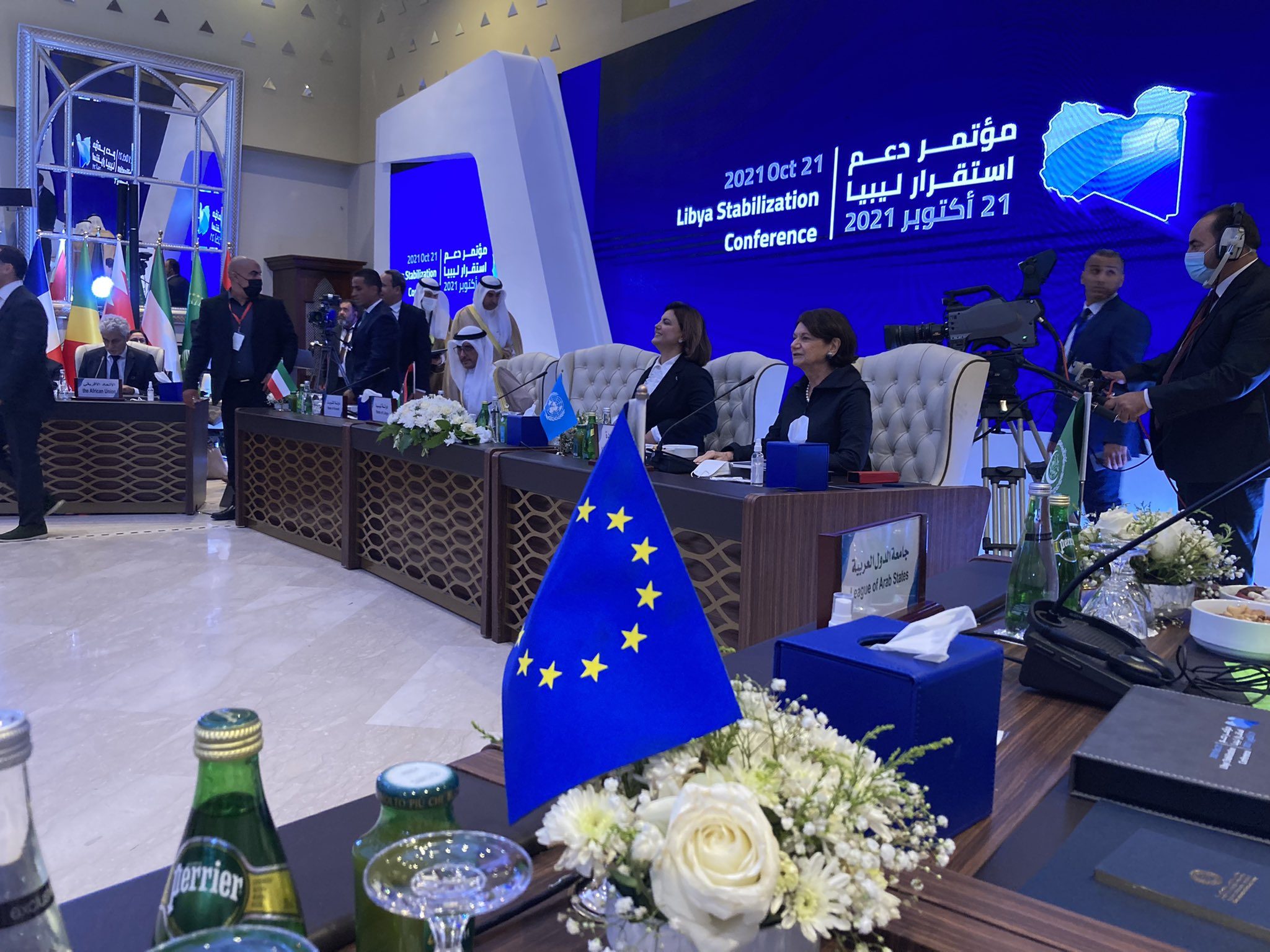Libya has struggled under a civil war since the ouster and killing of former leader Muammar Gaddafi in 2011.
A top Qatari official has taken part in a global conference designed to drum up support for the country’s unity government on Thursday, as the war-torn country gears up for presidential elections.
Qatar’s Minister of State for Foreign Affairs Sultan bin Saad Al Muraikhi attended the Libya Stabilisation Conference, state-run Libyan News Agency reported.
The conference was also attended by a number of officials from France, Italy, Egypt, Saudi Arabia, Turkey, Algeria, Tunisia, Chad, and Sudan.
Libyan Foreign Minister Najla Al-Manqoush said the conference aims to reach a “unified, supportive and coordinated international and regional position” that will enable the establishment of “mechanisms to ensure the stability of Libya”.
Doha’s participation comes after an invitation by Libyan Prime Minister Abdulhamid Dbeibah, who was in Qatar earlier this month.
The internationally-backed interim Government of National Unity [GNA] was formed in February following a UN-brokered ceasefire, paving the way for presidential elections scheduled to take place on 24 December.
Libya and Egypt receive Qatari ambassadors after years-long hiatus
“Tripoli has healed and regained its symbol as a unified capital. The stability of Libya is the only way to complete building our civilian, security, and military institutions. We are going to elections on time,” said Libya’s prime minister ahead of the conference.
The GNA came into office after years of instability following the overthrow of former leader Gaddafi – one of the Arab leaders that faced widespread protests during the 2011 Arab Spring.
Regional and international powers including the UAE, France and Russia have pumped funds into counter revolutionary forces in Libya in a bid to vie for power through warlord General Khalifa Haftar, who controlled Tripoli for several years.
Haftar was pushed out of the capital city by pro-government forces last year.
The United Nations High Commissioner for Refugees estimates that the conflict in Libya has internally displaced more than 200,000 people. Approximately 1.3 million people need humanitarian assistance.
While presidential elections are set for this year, legislative polls have been delayed amid a split between two rival administrations—Libya’s eastern-based army and its Tripoli-based government, both backed by foreign forces.
A UN report from last year said that an estimate of 20,000 foreign fighters were in Libya.
Libya’s foreign minister said foreign presence “represents a threat not just to Libya but to the entire region”.
“There is no other option but to respect fully the principle of non-interference. Deterrent actions should be taken against all those who interfere in others’ sovereignty,” said Mangoush, referring to foreign forces in the country.
Qatar has long expressed its support for stability in Libya following years of war. Doha has also championed the success of the political process.
The Gulf state signed a memorandum of understanding with the Libyan government in December last year that focuses on security cooperation between the two countries. The agreement was condemned by Haftar at the time.
Doha also participated in the second round of the global Berlin summit in June this year to put an end to war in the country.
A month later in July, Qatar’s Amir Sheikh Tamim bin Hamad Al Thani appointed Khalid Mohammed Al-Dosari as Doha’s ambassador to Tripoli. The Gulf state had shut down its consulate in 2014.
Qatar first expressed its desire to reopen its diplomatic office during a meeting between Libya’s foreign minister and her Qatari counterpart Sheikh Mohammed bin Abdulrahman Al Thani in June.
Follow Doha News on Twitter, Instagram, Facebook and Youtube







